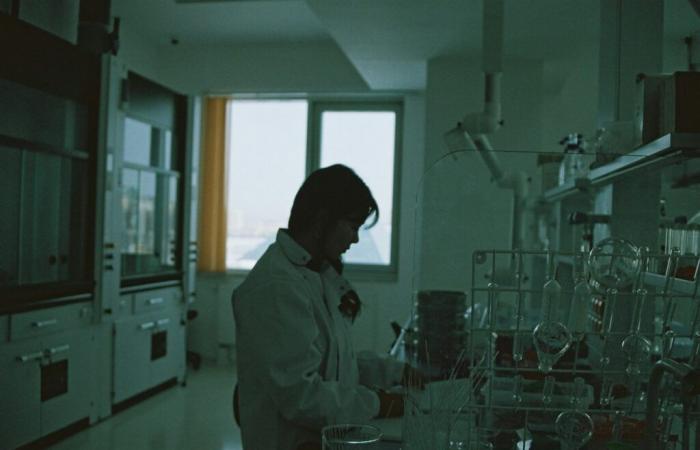Helena Alvarado Álvarezstudent of the Inter -institutional mastery in livestock production of the Irapuato-Salamanca Campus of the University of Guanajuato (And)she was awarded the Best article award in it 10th Congress of Recent Advances in Nanotechnology (RAN 2025)held in Barcelona, Spain. His research focused on the application of Nanotechnology in veterinary medicinespecifically in the use of liposomas to combat the chlamydophila abortus bacteria In goats, a significant cause of spontaneous abortions In production animals.
An innovative project in Veterinary Medicine
The article of Helena Alvaradotitled “Effect of a liposoma model on ligand-diana interactions in Chlamydophila abortus”stood out for its exclusive approach in the field of veterinary medicinean area where nanotechnology It is still incipient. Being the only mexicana in participating, and also the only one in the area of vethis work attracted the interest of the experts who attended Congress. “The nanotechnology is widely used in human medicinebut not in veterinary medicine. My project had a lot of interest because I addressed a unique topic: applications in animals, ”he explained Helena.
Facing veterinary challenges with nanotechnology
The approach of Helena Alvarado in the Chlamydophila abortusa bacterium that mainly affects goats and can cause spontaneous abortions In the first pregnancy, it is of great relevance. This disease, which is transmitted so much by way reproductive as oronasalescause important economic losses in the herds, in addition to being Zoonoticthat is, it can be transmitted to other animals and human beings.
Currently, veterinarians face limitations with traditional treatments, which are not always effective, especially in the First birth of the goats. The work of Helena seeks to improve the treatments efficiency by using liposomessmall vehicles that encapsulate medications to direct them more precisely to infected cells.
Innovation with liposomes and computational chemistry
The project of Helena Alvarado It relies on the In Silico Design of drugs, a latest generation tool in medical chemistry which uses computer simulations to determine the best form of interaction between a drug and its objective, such as a protein. This approach allows Accelerate the development of new medications by reducing the times and costs associated with experimentation.
With the collaboration of the ABNER JOSUÉ GUTIÉRREZ CHÁVEZ teachers, Erick Díaz Cervantes y Jorge Emmanuel Mejía Benavidesthe investigation of Helena focused on evaluating the effectiveness of liposomes To encapsulate and release specific medications that attack bacteria Chlamydophila abortus. The initial results showed that the use of these liposomes could Improve controlled drug administrationwhich represents a significant advance in the fight against this disease in production animals.
Advances in the International Medicines and Collaborations Test
An essential part of the work of Helena It is the Collaboration with the University of Hidalgowhich has a New medication data bank. These drugs, belonging to groups such as triazoles (antifungals), are being evaluated through computational simulations. According to Helenathis approach is allowing to identify the most promising medications in a form more efficientthus reducing the necessary time to try them in animals.
«We want to reintroduce the computational chemistry In the veterinary area, and good results have motivated us to continue with this innovative path, ”he said Helena.
Implications for veterinary medicine and livestock industry
The investigation of Helena Alvarado Not only has implications in veterinary medicine, but also in the Livestock industry in general. Chlamydophila abortus It is one of the main causes of economic losses In the production of goats and other animals, and a more effective treatment could significantly improve the health and productivity of herds.
In addition, the use of liposomes to deliver precise medications opens new possibilities to fight diseases in production animals with greater effectiveness and less resistance to antibiotics. This Innovative application of the nanotechnology It promises to mark a watershed in veterinary medicine.
Guanajuato opens Advanced Center in Information Technology with Cybersecurity and Digital Development Focus









